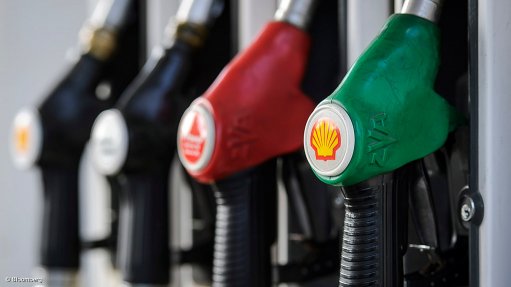
Photo by: Bloomberg
For Creamer Media in Johannesburg, I’m Thabi Madiba.
Making headlines: July fuel price outlook mixed for petrol, diesel; Eskom’s new grid queuing rules governed by ‘first ready, first served’ approach; And, Nigeria sets eight-week timeline to agree minimum wage with unions
July fuel price outlook mixed for petrol, diesel
Petrol prices currently still look set for a small cut at the start of July. Diesel, however, may be hiked.
Based on the current oil and rand prices, the latest data from the Central Energy Fund shows that diesel prices may be increased by 10c to 15c a litre, depending on the grade. Petrol 95 and 93 unleaded may be lowered by 6c a litre and 15c, respectively.
However, there is still some time to go before the final prices are set. Fuel prices will only be adjusted on July 5.
South African fuel prices are largely determined by international oil costs and the rand exchange rate, as oil is priced in dollars.
Eskom’s new grid queuing rules governed by ‘first ready, first served’ approach
Eskom is preparing to issue updated grid queuing rules that will outline how it plans to manage scarce grid connection capacity in a way that avoids “hogging” of capacity and ensures that only “shovel-ready” project are allocated capacity.
The new approach is contained in what Eskom terms its Interim Grid Capacity Allocation Rules document, which outlines a shift from the ‘first come, first served’ framework that has until now been implemented to one based on ‘first ready, first served’.
The absence of a queuing system came to the fore during the sixth bid window of the country’s public renewables procurement programme when none of the 23 onshore wind projects that bid for a 3 200 MW allocation were selected as preferred bids, owing to claims of grid over-subscription in the Western, Eastern and Northern Cape provinces.
Eskom tells Engineering News that the rules are “aimed at ensuring that as many generators are connected to the grid as soon as possible and also ensuring that there is no capacity hogging”.
And, Nigeria sets eight-week timeline to agree minimum wage with unions
Nigeria's main labour unions and the government set an eight-week timeline to finalise an agreement to raise the minimum wage to help cushion the impact of high fuel prices after the removal of a popular but costly petrol subsidy.
The Nigeria Labour Congress and the Trade Union Congress had threatened to strike after fuel prices tripled following President Bola Tinubu's decision to scrap the subsidy.
Talks with the unions are one of the first challenges the new administration faces as it pushes forward with a raft of economic reforms.
The parties agreed to set up work groups whose terms of reference will be agreed later today with some expected to start submitting their reports next week.
That’s a roundup of news making headlines today
Don’t forget to follow us on Twitter [@Polity ZA]